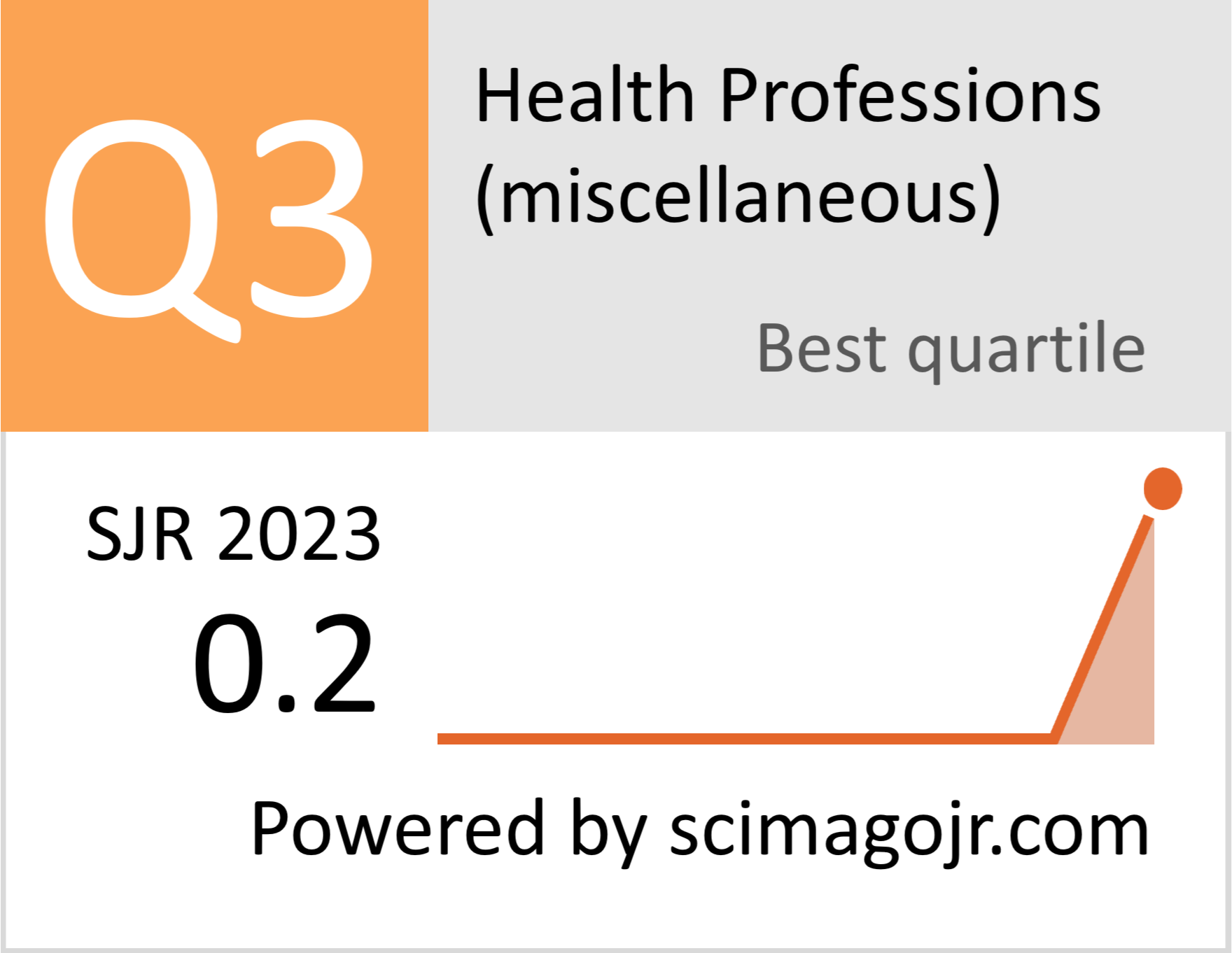Termination of Psychotherapy with Children and Adolescents in the Institutional Contexts from the Parents’ Perspective
Terminación de la psicoterapia con niños y adolescentes en los contextos institucionales desde la perspectiva de los padres

This work is licensed under a Creative Commons Attribution-NonCommercial-NoDerivatives 4.0 International License.
Show authors biography
Introduction. Knowing the forms of termination of psychotherapy and the associated factors allows us to understand this moment of treatment and to think about strategies to improve the process.
Objective. The present study seeks to identify the types of termination of psychotherapy in children and adolescents and the factors that influence them in two psychological care centers.
Methodology. A quantitative, exploratory, cross-sectional design was used, with a descriptive and association scope; 100 patients (48 children and 52 adolescents) were surveyed.
Results. Four types of termination were found: due to institutional or therapist factors, attributed to factors external to the treatment, due to user dissatisfaction, and achievement of objectives. Some associations between them and the clinical and sociodemographic characteristics of the treatment were identified.
Discussion. Institutional aspects and external conditions to the patient must be considered in constructing intervention strategies for this population. In addition, educating parents on psychological intervention and its institutional scope is required to modulate the expectations associated with the process.
Article visits 506 | PDF visits 120
- Fondo de las Naciones Unidas para la Infancia. Estado Mundial de la Infancia. 2021. En mi mente. Promover, proteger y cuidar la salud mental de la infancia [Internet]. Nueva York: UNICEF; 2021. 259 p. Available from: https://www.unicef.org/es/informes/estado-mundial-de-la-infancia-2021
- Cuello Royert C. Mapeo en salud mental adolescente en América latina y el caribe. In: Webinar I Panorama de la Salud Mental adolescente en América Latina y el Caribe [Internet]; 2019 Oct 8: UNICEF; 2019. 18 p. Available from: http://www.codajic.org/node/4095.
- Shechtman Z. Group Counseling and Psychotherapy With Children and Adolescents Theory, Research, and Practice. Theory, Research, and Practice. New York: Routledge; 2017. 306 p. doi: https://doi.org/10.4324/9781315093369
- Bear HA, Dalzell K, Edbrooke-Childs J, Garland L, Wolpert M. How to manage endings in unsuccessful therapy: A qualitative comparison of youth and clinician perspectives. Psychother Res [Internet]. 2022;32(2):249-62. doi: https://doi.org/10.1080/10503307.2021.1921304
- Deakin E, Gastaud M, Tiellet Nunes ML. Child psychotherapy dropout: an empirical research review. J Child Psychother [Internet]. 2012;38(2):199-209. doi: https://doi.org/10.1080/0075417X.2012.684489
- Swift JK, Callahan J, Levine JC. Using Clinically Significant Change to Identify Premature Termination. Psychotherapy (Chic) [Internet]. 2009;46(3): 328-35. doi: https://doi.org/10.1037/a0017003
- Vélez Gómez P, Restrepo Ochoa DA. El proceso de terminación en psicoterapia de tiempo limitado: aspectos clínicos y técnicos. CES Psicología [Internet]. 2008;1(2):58-68. Available from: https://revistas.ces.edu.co/index.php/psicologia/article/view/80
- Espinosa Duque D, Ibarra DA, Ocampo Lopera DM, Montoya L, Hoyos-Pérez A, Medina LF, Tamayo S, et al. Terminación de la psicoterapia desde la perspectiva de los pacientes. CES Psicología [Internet]. 2020;13(3):201-21. doi: https://doi.org/10.21615/cesp.13.3.12
- Roe D, Dekel R, Harel G, Fennig S. Client's reasons for terminating psychotherapy: a quantitative and qualitative inquiry. Psychol Psychother [Internet]. 2006;79(4):529-38. doi: https://doi.org/10.1348/147608305X90412
- Vidair HB, Feyijinmi GO, Feindler EL. Termination in cognitive-behavioural therapy with children, adolescents, and parents. Psychotherapy (Chic) [Internet]. 2017;54(1):15-21. doi: https://doi.org/10.1037/pst0000086
- Rojas Olivares AM, Vélez Ríos J, González García J. Alianza terapéutica: Un apoyo en la adherencia al tratamiento y al cumplimiento de los objetivos de intervención con niñas, niños y adolescentes [specialization dissertation]. [Pereira]: Universidad Católica de Pereira; 2021. 35 p. Available from: https://repositorio.ucp.edu.co/handle/10785/8247
- Lambert MJ, editor. Bergin and Garfield's handbook of psychotherapy and behaviour change. 6th ed. Hoboken: John Wiley & Sons; 2013. 851 p.
- Santangelo PR. Terminación prematura en Psicoterapia. Revista de psicoterapia [Internet]. 2020;31(115):181-95. doi: https://doi.org/10.33898/rdp.v31i115.316
- Råbu M, Haavind H. Coming to an end: A case study of an ambiguous process of ending psychotherapy. Couns Psychother Res [Internet]. 2012;12(2):109-17. doi: https://doi.org/10.1080/14733145.2011.608131
- Johnson E, Mellor D, Brann P. Factors associated with dropout and diagnosis in child and adolescent mental health services. Aust N Z J Psychiatry [Internet]. 2009;43(5):431-37. doi: https://doi.org/10.1080/00048670902817687
- Gastaud M, Numes ML. Treatment dropout in psychoanalytical psychotherapy: searching for definition. J bras psiquiatr [Internet]. 2010;59(3):247-54. doi: https://doi.org/10.1590/S0047-20852010000300012
- Reich CM, Berman JS. Are psychotherapies with more dropouts less effective? Psychother Res [Internet]. 2020;30(1):23-40. doi: https://doi.org/10.1080/10503307.2018.1534018
- Hernández Castellar AK, Jiménez Araujo AM, Valencia Valencia LX. Intervención con niños y adolescentes en terapia familiar: problemáticas, teorías y técnicas de intervención. [specialization dissertation]. [Medellín]: Universidad Católica Luis Amigó; 2020. 22 p. Available from: http://179.50.60.21:8080/xmlui/handle/ucatolicaamigo/1008
- Ormhaug SM, Jensen TK. Investigating treatment characteristics and first-session relationship variables as predictors of dropout in the treatment of traumatized youth. Psychother Res [Internet]. 2018;28(2):235-49. doi: https://doi.org/10.1080/10503307.2016.1189617
- Nof A, Dolev T, Leibovich L, Harel J, Zilcha-Mano S. If you believe that breaking is possible, believe also that fixing is possible: a framework for ruptures and repairs in child psychotherapy. Res Psychother [Internet]. 2019;22(1):45-57. doi: https://doi.org/10.4081/ripppo.2019.364
- Thompson MN, Goldberg SB, Nielsen SL. Patient financial distress and treatment outcomes in naturalistic psychotherapy. J Couns Psychol [Internet]. 2018;65(4):523-30. doi: https://doi.org/10.1037/cou0000264
- Garayoa JAC, Pérez-Testor S, Magriña MA. El abandono de los tratamientos psicoterapéuticos. Clínica y salud [Internet]. 1996;7(3):271-92. Available from: https://journals.copmadrid.org/clysa/art/b73ce398c39f506af761d2277d853a92
- De la Parra G, Gómez-Barris E, Zúñiga AK, Dagnino P, Valdés C. Del diván al policlínico: un modelo de psicoterapia para instituciones. Aprendiendo de la experiencia (empírica). Revista Argentina de Clínica Psicológica [Internet]. 2018;27(2):182-202. doi: https://doi.org/10.24205/03276716.2018.1057
- Jaramillo JC, Espinosa D, Ocampo D, Arango A, Arévalo M, García L, et al. Caracterización de la atención psicoterapéutica en la IPS CES Sabaneta, Colombia, 2014-2015. CES Psicología [Internet]. 2018;11(2):97-110. doi: https://doi.org/10.21615/cesp.11.2.9
- Rondón Benítez AP, Bastidas ILO, Camargo YS. Factores que influyen en la deserción terapéutica de los consultantes de un centro universitario de atención psicológica. Int J Psychol Res [Internet]. 2009;2(2):137-47. Available from: https://revistas.usb.edu.co/index.php/IJPR/article/view/869
- Fernández González OM. Alianza terapéutica, acciones comunicacionales e indicadores de cambio genéricos en la fase inicial de la psicoterapia con adolescentes, y su relación con resultados y adherencia al tratamiento [Doctoral dissertation]. [Santiago de Chile]: Pontificia Universidad Católica de Chile, Universidad de Chile; 2013. 189 p. Available from: https://repositorio.uchile.cl/handle/2250/183295
- Bustos Martínez DA. Psicoterapia en adolescentes: contexto, motivaciones y expectativas en la primera consulta [Master’s thesis]. [Santiago de Chile]. Universidad del Desarrollo; 2017. 120 p. Available from: https://repositorio.udd.cl/items/b1cf579d-e17d-421e-a41a-146b8af7bcf6
- Fernández D. Contribuciones del Contra-Edipo parental en la clínica con adolescentes. Psicol USP [Internet]. 2021;32:1-9. doi: https://doi.org/10.1590/0103-6564e180153
- Bleichmar ED. Manual de psicoterapia de la relación padres e hijos. Barcelona: Paidós Ibérica; 2005. 552 p.
- Palacín F, Silva C, Krotter L. Factores Cognitivos en la Adherencia al Tratamiento. IX Congreso Internacional De Psiquiatría. 2002. Buenos Aires: AAP.
- León S. El psicoterapeuta como persona: apuntes personales y profesionales. Santiago de Chile: RIL Editores; 2016. 232 p.
- Finegan M, Firth N, Wojnarowski C, Delgadillo J. Associations between socioeconomic status and psychological therapy outcomes: A systematic review and meta‐analysis. Depression and Anxiety [Internet]. 2018 Apr 26;35(6):560–73. doi: http://dx.doi.org/10.1002/da.22765
- Clark CM. Irreducibly human encounters: Therapeutic alliance and treatment outcome in child and adolescent psychotherapy. J Infant Child Adolesc Psychother [Internet]. 2013;12(3):228-43. doi: https://doi.org/10.1080/15289168.2013.822751
- Andrade ERC, Rivera MEL, Monterrosa ANF, de Orellana AL. Satisfacción de los pacientes con el servicio de atención psicológica de una clínica universitaria. Alerta (San Salvador) [Internet]. 2021;4(2):20-7. doi: https://doi.org/10.5377/alerta.v4i2.10889
- Fernández Sanz S, Fernández Gonzalez O, Krause Jacob M. Expectativas de niños y padres consultantes frente a la psicoterapia infantil. CES Psicología [Internet]. 2021;14(2):48-70. doi: https://doi.org/10.21615/cesp.5355
- Jo T, Almao S. Abandono del tratamiento en una consulta externa de psiquiatría y psicología clínica. Revista Electrónica de PortalesMédicos.com [Internet]. 2002;2-14. Available from: https://www.portalesmedicos.com/monografias/abandono_tratamiento/index.htm
- Londoño J. Padres, niños y psicoterapia: La inclusión parental en psicoterapia infantil desde la representación de sus participantes [Internet]. 1st ed. Medellín: Universidad de Antioquia; 2021. 146 p. Available from: http://www.jstor.org/stable/j.ctv2rcnq0g
- Fernández O, Pérez C, Gloger S, Krause M. Importancia de los Cambios Iniciales en la Psicoterapia con Adolescentes. Terapia Psicológica [Internet]. 2015;33(3):247-55. doi: https://doi.org/10.4067/S0718-48082015000300008
- Corbella S, Botella L. La alianza terapéutica: historia, investigación y evaluación. Anales de psicología. 2003;19(2):205-21. Available from: https://revistas.um.es/analesps/article/view/27671
- Cryan G, Quiroga S. Análisis de la función reflexiva-RF en sesiones de grupo de terapia focalizada para adolescentes violentos. Interam J Psychol [Internet]. 2016;50(2):275-87. Available from: https://journal.sipsych.org/index.php/IJP/article/view/125
- Gómez C, Lama X, Capella C. Psicoterapia y Superación de Agresiones Sexuales: Mensajes de Niños/as y Adolescentes a Pares y Psicoterapeutas. Psykhe [Internet]. 2021;30(2):1-15 doi: https://doi.org/10.7764/psykhe.2019.22385
- Weisz J R, Kazdin AE. The present and future of evidence-based psychotherapies for children and adolescents. In: Weisz JR, Kazdin AE, editors. Evidence-based psychotherapies for children and adolescents. New York: Guilford Press; 2017. p. 577-95.
- Norka M, Dangerfield M. Tratamiento basado en la mentalización para niños: Aplicaciones clínicas en el contexto actual. 1st ed. Barcelona: Herder Editorial; 2023. 496 p.



